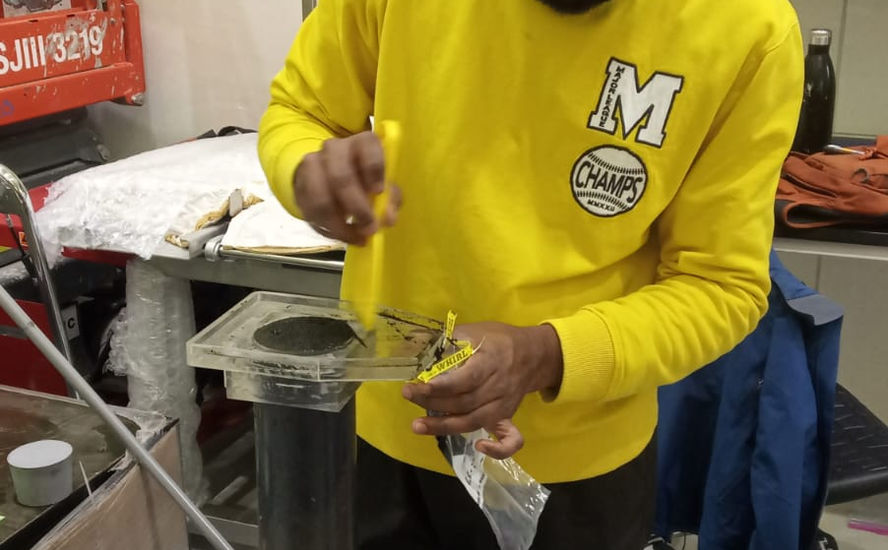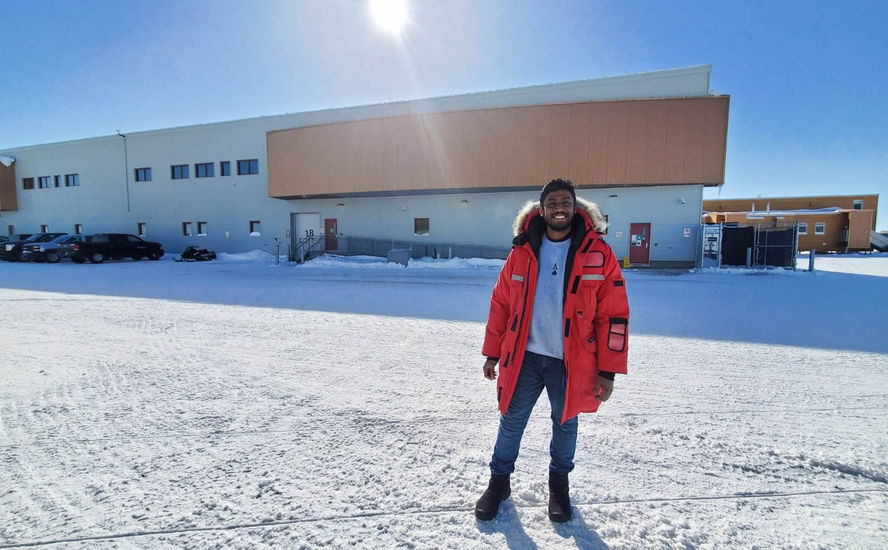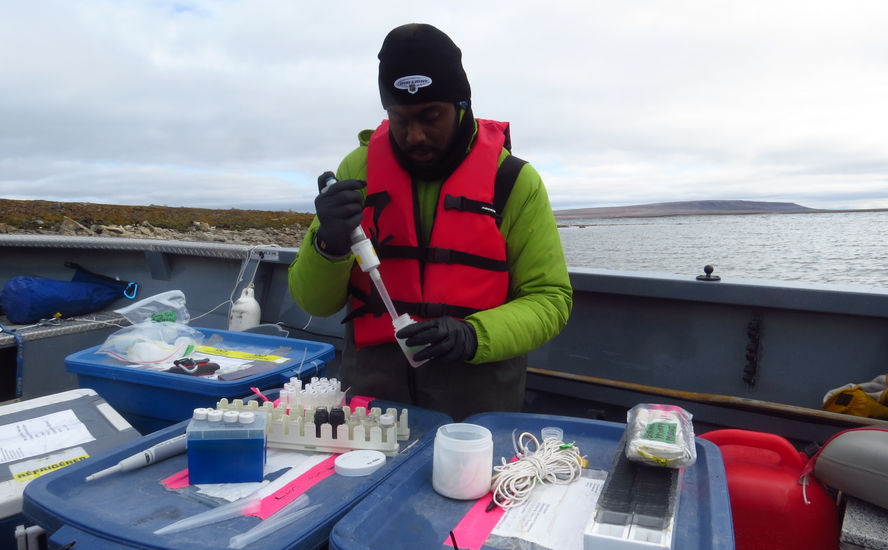
Mukund Ramesh Gauthankar
PhD student
Year-round limnological, microbial community and trophic transfer dynamics in Arctic freshwater ecosystems
As a PhD student at the Université du Québec à Chicoutimi (UQAC), my research focuses on unraveling the year-round ecological dynamics of Greiner Lake, a remote Arctic lake in Cambridge Bay, Nunavut. Contrary to the common view that Arctic lakes are dormant in winter, my work reveals these ecosystems' resilience and activity even during the harshest conditions. My goal is to understand how the seasonal and environmental fluctuations within Arctic lakes influence both microbial and ecological processes, especially under the pressures of climate change.
Research Overview
My study examines key physical, chemical, and biological parameters to uncover how Greiner Lake functions as an ecosystem across all seasons. Specifically, I focus on:

Light Availability and Photosynthetically Active Radiation (PAR): Using continuous data collected from mooring sensors at various depths, I analyze changes in light availability, a crucial driver of primary productivity. The seasonal fluctuations in PAR under ice cover versus open water periods provide insights into the impact of light on microbial and ecological processes.
Temperature and Dissolved Oxygen: Data on temperature and dissolved oxygen levels reveal how physical changes affect biological productivity across the year. By tracking these parameters, I aim to identify the specific effects of winter ice cover and the summer open-water period on oxygen dynamics and nutrient cycling.
Microbial Community Dynamics: A core focus of my research is understanding how microbial communities adapt to extreme Arctic conditions. By analyzing DNA and using microscopy and flow cytometry, I can observe shifts in microbial composition and abundance, assessing their roles in nutrient cycling and carbon flow within the lake’s food web.
This year-round approach, combined with historical data, provides a comprehensive view of the lake’s ecological dynamics and highlights the crucial role of microbial communities in supporting Arctic lake ecosystems.
Broader Significance of the Research
My research addresses the pressing need to understand how Arctic freshwater ecosystems are responding to climate change. As ice covers shorten and temperatures rise, these ecosystems face unprecedented shifts in seasonal patterns. My work contributes critical data to models predicting climate-driven impacts on Arctic lakes and highlights specific indicators of resilience and adaptability within these systems.
By exploring the interactions between physical conditions, light availability, and biological productivity, my research supports a broader understanding of Arctic lake vitality, emphasizing the need to monitor these ecosystems year-round to capture the full picture of their responses to environmental changes.
Field Campaigns and Training
I have completed extensive field campaigns in Arctic environments, collecting year-round data from Greiner Lake across multiple seasons. These campaigns involved intricate logistical planning, including setting up and maintaining mooring sensors under extreme weather conditions. My field training includes certifications in skidoo and ATV quad operation, essential for safe navigation and transportation in remote, icy conditions.
Educational and Research Background
I hold a robust background in aquatic and environmental sciences, supported by hands-on experience in both oceanic and freshwater research. Before pursuing my PhD, I was involved in multiple projects, including Oceanic Science and Bioremediation. My previous work includes method development for amino acid profiling using HPLC, research on oxygen minimum zones, and exploring bioremediation applications for marine environments. These experiences equipped me with a strong foundation in analytical techniques and an appreciation for the complex interplay between environmental stressors and microbial communities.
Academic Presentations and Contributions
I actively share my research findings through presentations and publications to contribute to the broader scientific community. For more updates on my work follow my research handles at
Feel free to reach me at mrgauthank@etu.uqac.ca
Future Directions
Looking ahead, I aim to deepen our understanding of Arctic lake ecology by expanding on the findings from Greiner Lake. My future work includes further investigating microbial contributions to nutrient cycling and carbon flow, focusing on how these processes change under seasonal ice cover. I hope to contribute valuable insights that inform climate adaptation strategies, supporting the preservation of Arctic freshwater ecosystems in a rapidly warming world.

























